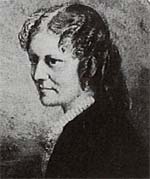A Quote by Jefferson Davis
Tradition usually rests upon something which men did know; history is often the manufacture of the mere liar.
Related Quotes
I don’t know much about history, and I wouldn’t give a nickel for all the history in the world. It means nothing to me. History is more or less bunk. It's tradition. We don't want tradition. We want to live in the present and the only history that is worth a tinker's damn is the history we make today.
Both Italy and Britain have a great tailoring tradition. British men are famously elegant and careful with their style: they love to have their clothes tailored, and they often have a trusted tailor who is passed on from father to son. Plus you have this great textile and fabric tradition, which has been a source of inspiration to us.
The mere fact of leaving ultimate social control in the hands of the people has not guaranteed that men will be able to conduct their lives as free men. Those societies where men know they are free are often democracies, but sometimes they have strong chiefs and kings.they have, however, one common characteristic: they are all alike in making certain freedoms common to all citizens, and inalienable.
I got into my first serious relationship with a man when I was twenty-three. I had, before that, sort of a typical, sad history of relatively promiscuous sexual encounters with men I didn't know, because I felt that if I were involved with people I did know, other people would know that I was gay, and it was something that I needed to keep so secret.
In this same tradition, beauty is inextricably bound up with the principles of order and harmony believed to underlie the cosmos. Artists in the Classical tradition, inspired by Platonic idealism, strove to create images that represented not the world of particulars-with all its defects-but an ideal image conceived in the mind, which was taken as representing some absolute, pure, ideal form of which all particular, material forms are but a mere shadow.
The men who founded and governed Massachusetts and Connecticut took themselves so seriously that they kept track of everything they did for the benefit of posterity and hoarded their papers so carefully that the whole history of the United States, recounted mainly by their descendants, has often appeared to be the history of New England writ large.









































